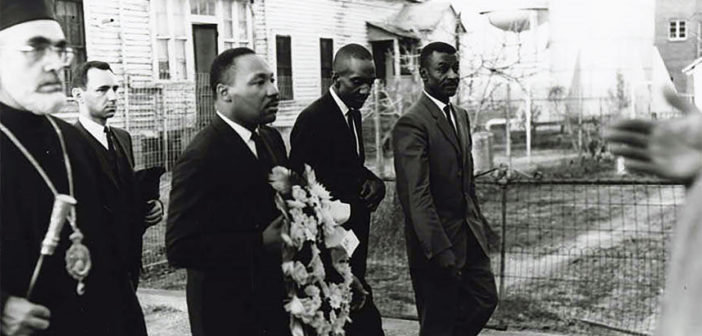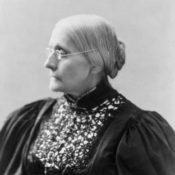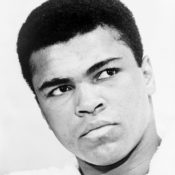The quarterback for the San Francisco 49ers, Colin Kaepernick, incited national outrage this NFL season when he refused to stand during the playing of “The Star-Spangled Banner.” Taking a knee at the start of the preseason game, Kaepernick cited racial injustice as his motivation for his silent protest.
“I am not going to stand up to show pride in a flag for a country that oppresses black people and people of color,” said Kaepernick during a post-game interview.
Critics have since admonished Kaepernick’s actions as “unpatriotic,” unheroic and even unprogressive in the wake of racial unrest throughout the country. Historically, however, public dissent has gone nearly hand-in-hand with some of the most renowned civil protesters and social activists to date.
- Susan B. Anthony – Women’s Suffrage, 1850s
In addition to founding the women’s suffrage movement, Anthony was a well-known abolitionist of her time – a decision that met much public criticism. When she joined the American Anti-Slavery Society in Syracuse in 1856, she was attacked physically as well as personally. Hostile mobs, armed threats, and thrown projectiles met her throughout the city, and her image as an activist was dragged through the streets.
As a suffragist, Anthony faced similar criticism. When Anthony was refused the right to speak at a state convention as the president of the Daughters of Temperance, she and Elizabeth Cady Stanton founded the Women’s State Temperance Society. There, she argued for women’s right to vote and petition on the subject of prohibition – garnering 28,000 signatures from women and children which were promptly rejected by the State Legislature.
Believing that women deserved the right to vote in order for politicians to hear their voices, Anthony continued to incorporate feminism within her temperance protests. She and Stanton were ultimately criticized for “talking too much about women’s rights” in a setting concerned with prohibition only. Both women resigned from the Women’s State Temperance Society shortly after founding it.
- Rosa Parks – Civil Rights Movement, 1950s
A rebellious N.A.A.C.P. activist for most of her life, Parks only found herself under the fire of public dissent after her now-famed act of civil disobedience on December 1, 1955. That day, Parks refused to give up her bus seat to a white man in accordance with state-wide segregation laws, and was ultimately arrested and fined. Her civil disobedience sparked the Montgomery Bus Boycott, causing outrage among white citizens. In the weeks following her arrest, Parks received a slew of hate calls and death threats. She was fired from her department store job, and impoverished, she and her husband were forced to move from Montgomery to Detroit in 1957.
- Martin Luther King, Jr. – Civil Rights Movement, 1960s
Now regarded as the father of the Civil Rights Movement, King was opposed by more than half of all Americans at the height of the ‘60s. A Gallup poll conducted in May 1963 found that 46 percent of Americans held an unfavorable view of King. By 1966, three years after his famous “I Have a Dream Speech,” this percentage grew to two-thirds of the American population, putting King just second to America’s disdain for Soviet leader Nikita Khrushchev.
His decision to march on public streets, his invitation for violence as well as his refusal to cease controversial protests (see Birmingham Children’s March) resulted in this lack of favor. Editorials and public letters admonished King for his “excessive” demonstrations, arguing that such riots were foolish and counterproductive to the Civil Rights Movement.
- Muhammad Ali – Conscientious Objection, 1960s
When Ali publicly objected to fighting in the Vietnam War on the grounds of his Islamic beliefs, the heavyweight champion of the world quickly became the most hated public figure in the American political arena.
During a time in which support for the war was above 50 percent, according to a Gallup poll, the boxer’s opposition made him a target of ridicule. Ali was stripped of his boxing title, fined $10,000 and arrested for draft dodging in 1967. Legally, he was banned from the boxing ring.
Famous sportswriters, such as Red Smith and Jim Murray, labelled Ali a “punk;” other athletes, including famous athlete and activist Jackie Robinson, admonished Ali for being “too radical” in his anti-war protest.
- Harvey Milk – Gay Rights Movement, 1970s
After running several times for public office in San Francisco, Milk finally became the first openly gay elected official in America upon winning the election for city supervisor in 1977. Leader of the Gay Rights Movement first and foremost, Milk spent his political career advancing gay rights as well as outlawing discrimination based on sexual orientation. His 11 months in office ultimately met criticism from an American population founded in traditional values.
During a time when homosexuality was considered an illness, political opponents deemed him a sexual predator and accused him of pushing an “unhealthy” agenda. As a result, Milk received a slew of death threats, prompting him to write a will that same year. “If a bullet should enter my brain,” he wrote, in response to threats of assassination, “let that bullet destroy every closet door.”



